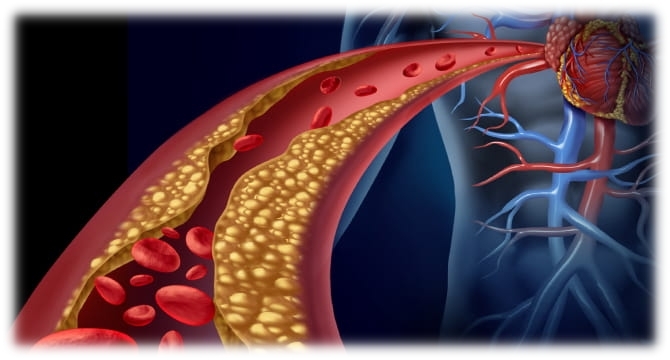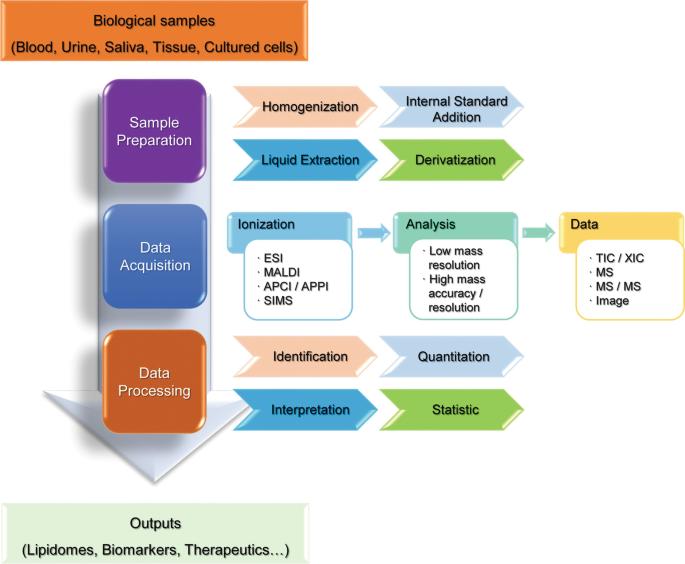Lipidomics for Cardiovascular Diseases Research

Cardiovascular disease (CVD), which includes hypertension, coronary heart disease, atherosclerosis, cardiomyopathy, and heart failure, is the leading cause of death worldwide, accounting for approximately 30% of all deaths worldwide. The occurrence of cardiovascular diseases is the result of a combination of genetic and environmental factors that induce them. Lipid molecules are important structural components of the cardiomyocyte membrane. Studies have found that saturated fat is strongly associated with mortality from CVD.
The application of genomics and proteomics to screen for variant genes and expressed proteins of the disease can help elucidate the disease mechanism from the source. Lipidomics helps in CVD risk prediction, early diagnosis and prognosis assessment. Exploring the correlation between new unique lipid species and CVD will provide new directions for clinical diagnosis and treatment. Detection and quantitative analysis of altered lipid metabolites to discover the regulatory mechanisms and key regulatory points of metabolic pathways will help to elucidate disease mechanisms.
The study of cardiovascular disease drugs by lipidomics approach can reveal how different drugs cause changes in lipid profiles respectively. Based on these changes in lipid metabolites, an accurate material basis for drug efficacy can be proposed to develop targeted drugs and facilitate precision medicine.
Creative Proteomics provides customized lipidomics solutions to help expand the vision of cardiovascular disease pathogenesis and facilitate advances in cardiovascular disease drug development research.
Featured services
Technology Platform for Lipidomics Service
Creative Proteomics designs experimental protocols based on customer needs and selects different technical methods to improve assay efficiency and ensure the accuracy and reproducibility of results.
Based on LC-MS/MS technology to simultaneously analyze hundreds of different lipids in biological samples to obtain more information. Through bioinformatics data analysis, we can systematically elucidate the variation at the lipidome level and the regulatory mechanisms in the experimental group compared to the control group from a lipid perspective.
Targeting specific lipid molecules and their metabolites in samples. Based on high-resolution mass spectrometry and isotope internal standard, we use parallel reaction monitoring (PRM) targeted analysis technology, which can realize the specific acquisition of signals of multiple lipid molecules (such as dozens of target lipid molecules) at the same time, and obtain their absolute contents to meet the needs of targeted detection and verification of target lipids. Using Orbitrap mass analyzer and ultra-high resolution mass spectrometry, high quality data can be obtained. Sensitivity up to ppm level and linearity range up to 5-6 orders of magnitude.
 Lipidomics Analysis Process (Wang et al., 2021)
Lipidomics Analysis Process (Wang et al., 2021)
Advantages of Lipidomics Services
- Experienced in sample pre-processing and can handle a wide range of tissue cell samples
- Multi-isotope internal standard calibration, including QC and other multiple quality control systems to make the quantitative more accurate
- Suitable for complex matrices, more metabolite and metabolic network information can be obtained in a single test
- Professional data analysis, able to perform PCA, OPLS-DA, T-test and other analysis on the data
How we work in 7 easy steps

If you have any questions about our lipidomics services for cardiovascular disease research, please contact us.
Reference:
- Wang, Y. (2021). Applications of Lipidomics in Tumor Diagnosis and Therapy. In Lipid Metabolism in Tumor Immunity (pp. 25-39). Springer, Singapore.
* Our services can only be used for research purposes and Not for clinical use.
Applications:



 Lipidomics Analysis Process (Wang et al., 2021)
Lipidomics Analysis Process (Wang et al., 2021)